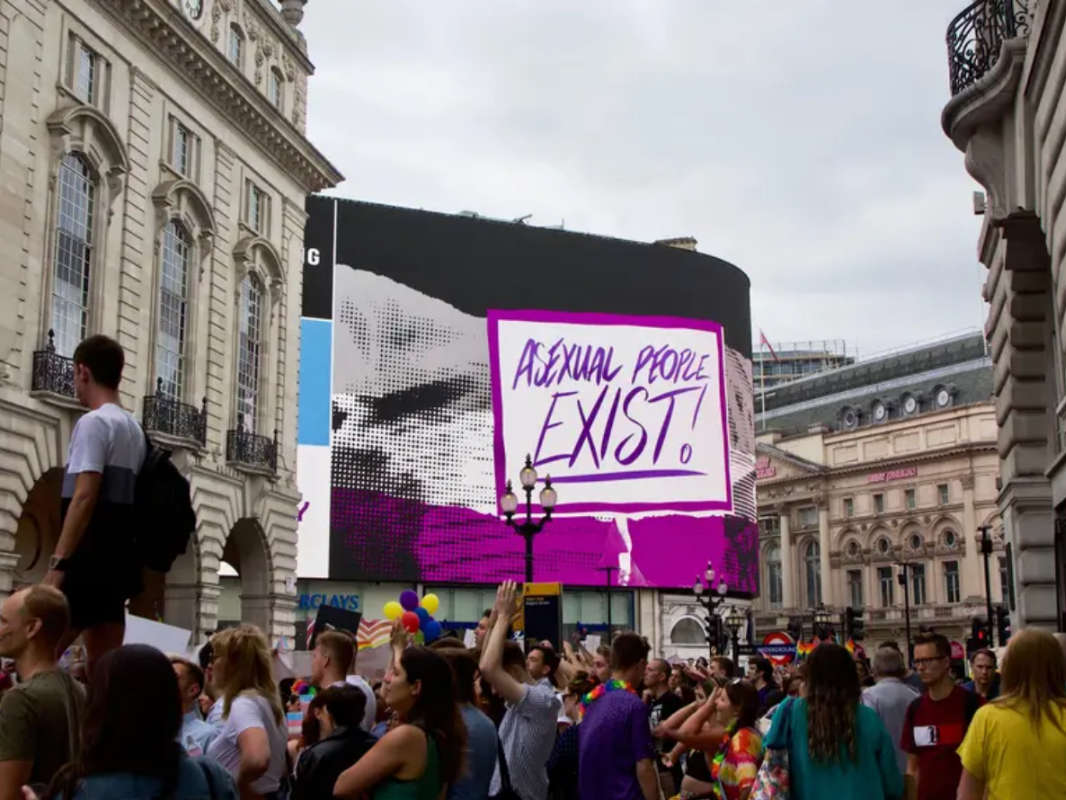
Asexual people make up roughly 1% of the world’s population, according to The Asexual Visibility and Education Network.
But there’s still a lot of misunderstanding about what it means to be asexual, and how people who identify as asexual factor into the LGBT+ community.
Asexuality – also known as ‘ace’ – is a sexual orientation. Asexual people might experience attraction in a different way to others, and do not experience sexual desire in the same way.
However, that doesn’t automatically mean they don’t experience any forms of attraction, and some asexual people may also identify as gay/straight/bi, etc, as well as being asexual. Everyone has different experiences with asexuality.
Here are some things asexual people want you to know…
1. You might feel different to others growing up
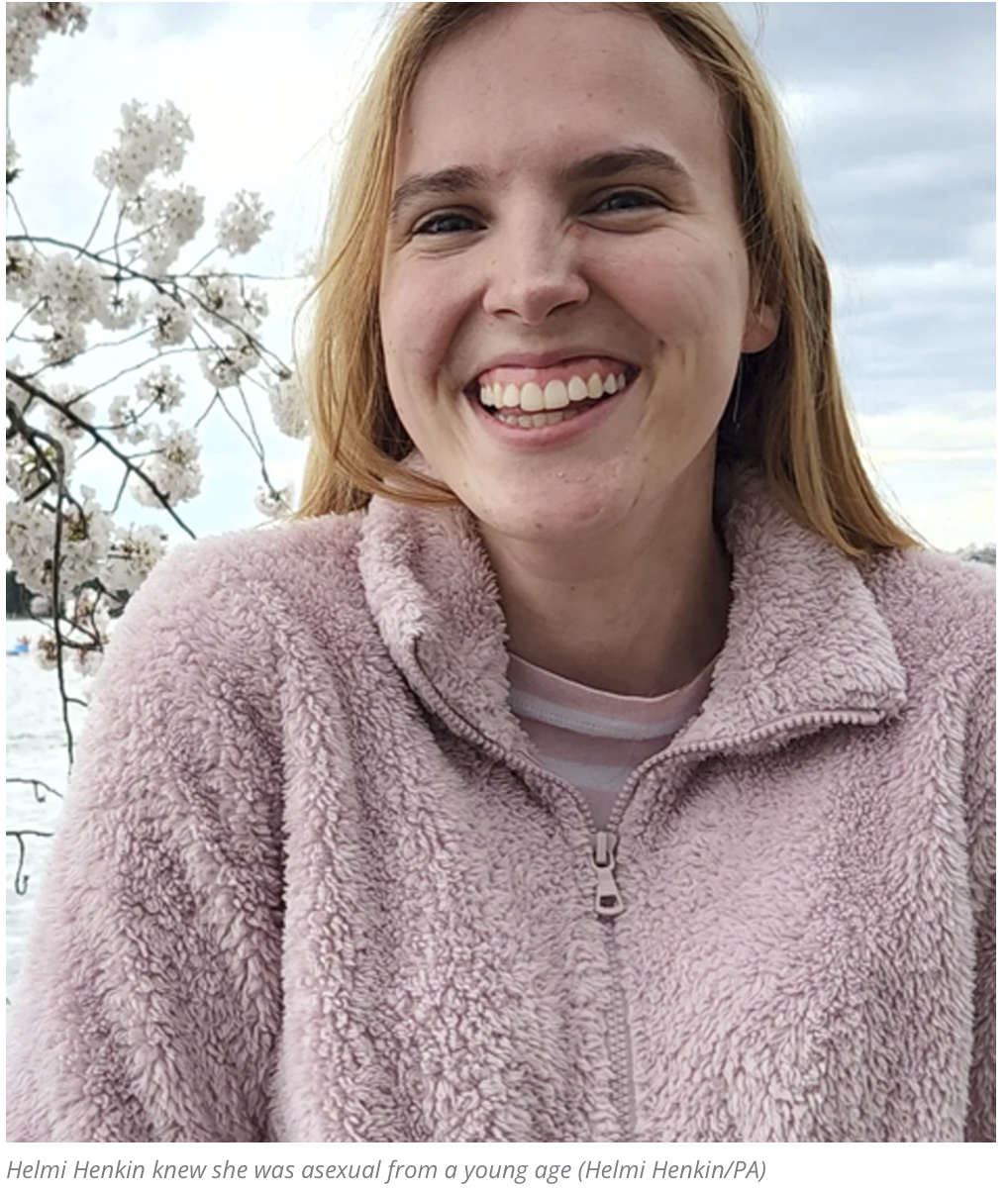
Therapist Helmi Henkin, 25, knew she was asexual from a young age, but she says she “didn’t have the language for it until maybe high school”.
This was “when I was able to join Tumblr, and be a part of more progressive communities, where people talked more about their identity and explored it”.
As those around her were entering into sexual relationships and developing strong feelings for romantic partners in high school, Henkin felt different. “That was something that was really important to them, and it wasn’t really important to me.”
2. Asexual people might approach sex and relationships differently
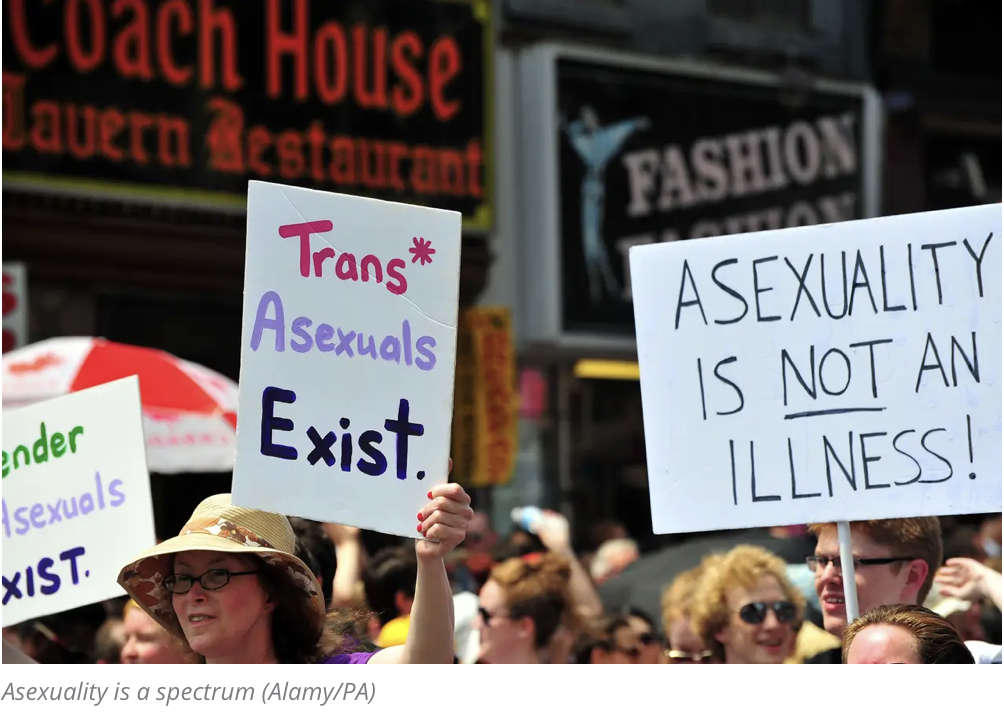
Like so many things, asexuality is a spectrum – some asexual people may choose to have relationships, while others may not.
Henkin shares that she is “in a happy, long-term, committed relationship. I’ve always been able to experience crushes and fall in love.”
Similarly, some asexual people do still have sex – but they may not desire it often, or experience arousal in the same way, their libidos may be lower, or they may not feel sexually attracted to an individual. Henkin says she has “participated in plenty of consensual sexual experiences over the years” – but for her, this is more of an emotional, romantic act than a sexual one.
“With the right person, it’s another way to be intimate and show your love for them,” she says. While some asexual people “maybe like having sex”, there are “people who are sex-repulsed, and never want to have sex”, Henkin adds.
3. Not everyone understands asexuality

Not everyone believes asexual people should fall under the LGBT+ umbrella, suggesting they do not face the same kinds of oppression other groups might, but Henkin finds great comfort in being part of the community.
“Being part of the LGBTQ community is different for everybody, and everybody defines their identity differently. I think the point of it being a community is we can lean on and support each other,” she says.
Activist and model Yasmin Benoit, 25, knew she was asexual in early puberty, but says it wasn’t until she was in her early 20s that she felt people began taking her sexuality seriously.
“People have a lot of opinions about asexuality, without actually knowing much about it,” Benoit explains. She began using her platform as a model to discuss asexuality and raise awareness, and is currently working with Stonewall to help provide greater support to asexual people.
4. You might be asked some invasive questions
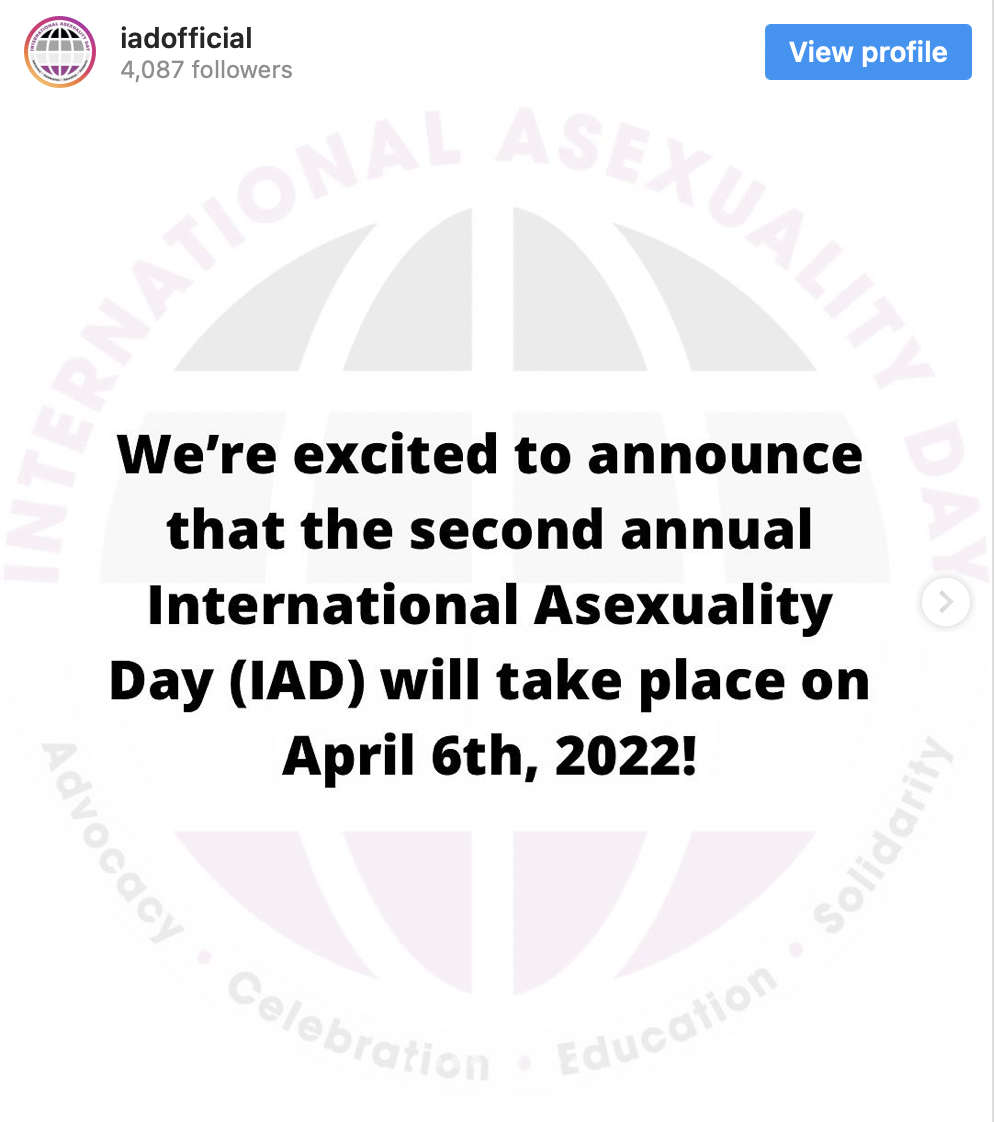
Henkin finds a lot of people are curious about her sexuality, but this can sometimes deviate into being intrusive.
“There are definitely ways to ask about asexuality and learn about people’s own experiences and definitions of it, that don’t involve getting into the intimate details of their sex life,” she says.

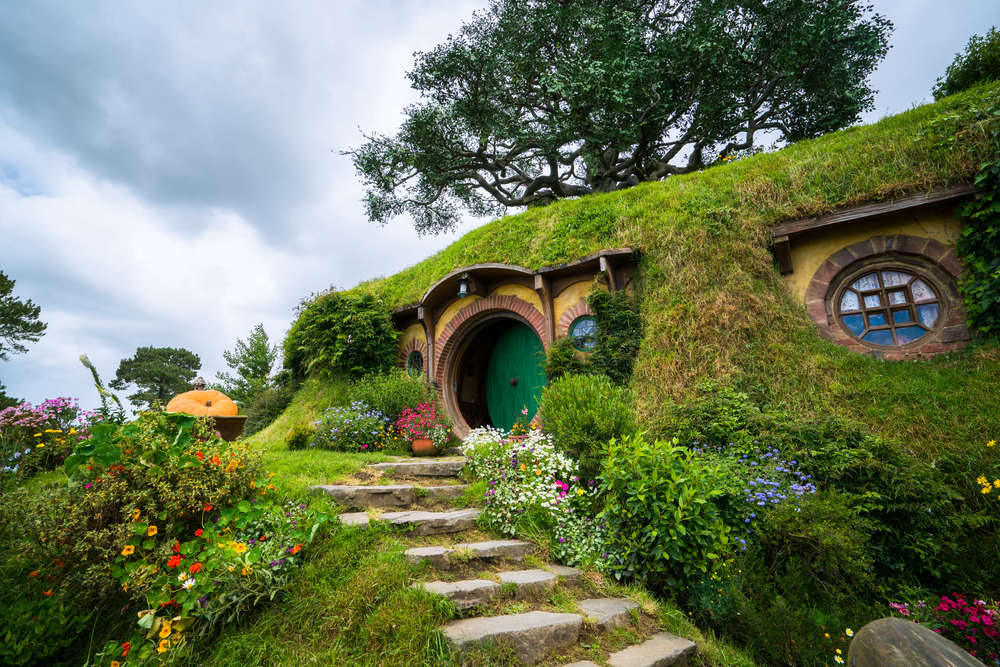 Five Fantasy Worlds We’d Love To Explore In Real Life
Five Fantasy Worlds We’d Love To Explore In Real Life
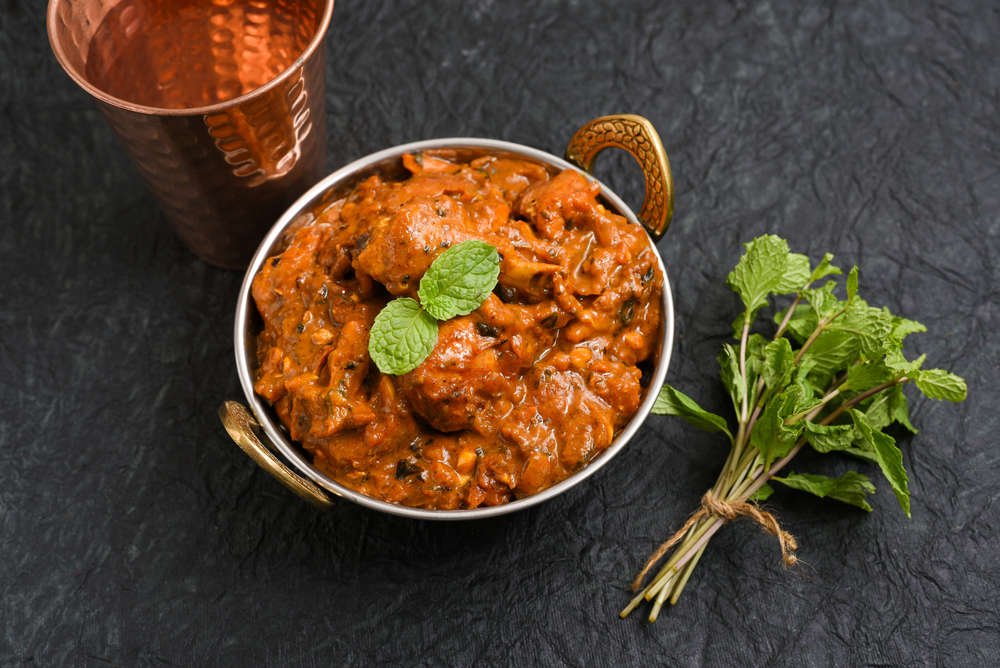 Five Amazing Global Meals To Cure The January Blues
Five Amazing Global Meals To Cure The January Blues
 Five Incredible Spas Around the World
Five Incredible Spas Around the World
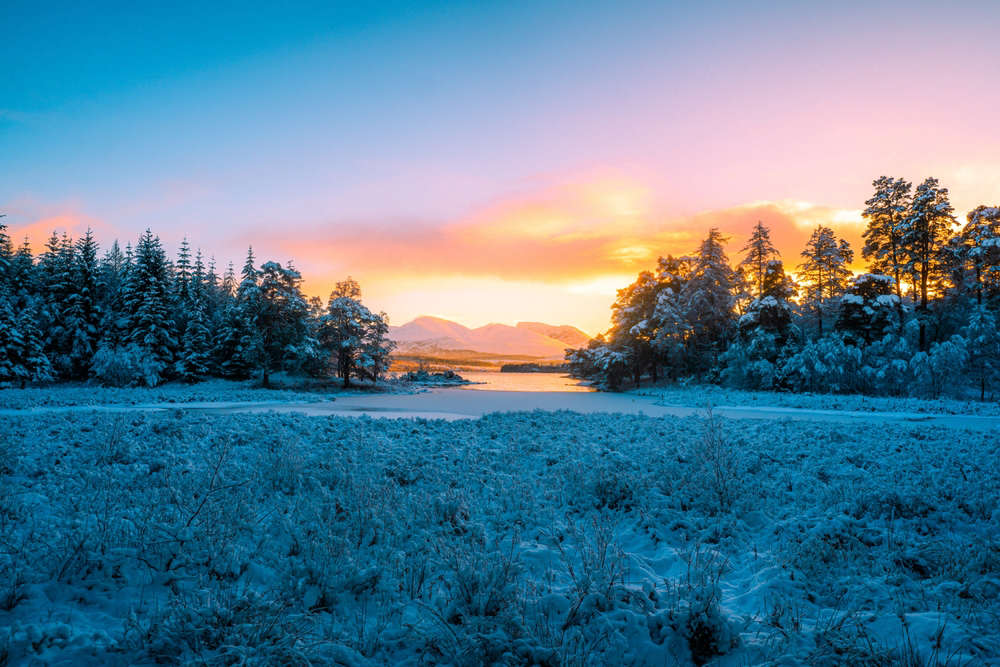 Five Fab Wellbeing UK Destinations Ideal in January
Five Fab Wellbeing UK Destinations Ideal in January
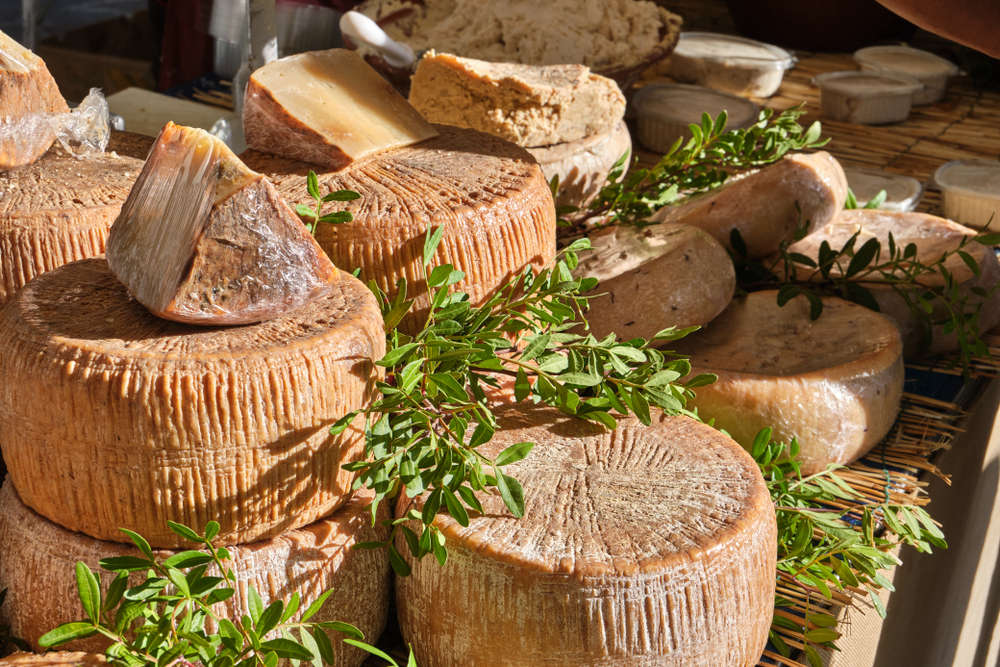 Five Weird Wellbeing Foods Around The World
Five Weird Wellbeing Foods Around The World